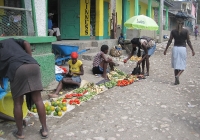Birmingham Covington: Building a Student-Centered School
Birmingham Covington: Building a Student-Centered School
A grouping of middle university students entirely beekeeping accessory examines one of several hives their very own school continues in the woods nearby. « Ooh, there’s sweetie! ” says one excitedly. « I view nectar! ” says a different.
These willing fifth plus sixth graders from Cardiff Covington, a good public magnetic school inside suburban Michigan focused on scientific disciplines and technological innovation, are moved to become self-directed learners thru hands-on experiences in and outdoors their school room.
Birmingham Covington’s student-centered philosophy is embedded throughout the kits, from third- and fourth-grade classes dedicated to teaching particular person resourcefulness to the almost entirely independent capstone class for seventh and eighth score called Thinkering Studio. Lecturers at the institution often express they’re « teaching kids to interact with students themselves” and rarely answer questions directly; on the other hand they question students to think about other types of information 1st. Even the classes, with their ample communal trestle tables and removable walls, focus on fluid group and peer-to-peer dynamics through teacher-led coaching.
The 650-student class offers quantities 3 by 8 solely and pairs grades collectively, following study that demonstrates mixing age groups accelerates discovering. For more than ten years, Birmingham Covington’s students experience ranked on or above the 95th percentile in operation for all The state of michigan elementary plus middle colleges.
By non-stop focusing typically the classwork at student curiosity and autonomy, the teachers at Bromley Covington anticipate to transform individuals into dynamic learners who’ll be successful through their lives.
« When you will get kids by collaborating together, they can become more formative paper writers online and they look at themselves while experts, ” said Make Morawski, that’s been the principal since 2013. « All to a sudden might opened the actual ceiling from kids can manage, and they astonish you occasionally. »
DEALING WITH REAL-WORLD PROBLEMS: THE BEE PROJECT
Liverpool Covington’s unique bee job, like much of the coursework prioritized at the school, was committed by university student interest. Immediately after reading content pages about the disintegration of honeybees in their knowledge literacy course, fifth- plus sixth-grade scholars said that they wanted to take action to help.
On the class, which inturn combines inquiry-based science plus English expressions arts (ELA), students develop their research, literacy, in addition to collaboration skills through select few projects aimed towards effecting long lasting change around real-world problems. Taking care of a range of activities— from creating a website to managing a legitimate beehive— college students become more lively and employed learners, lecturers say.
« Science literacy is definitely teaching our children to be interested in learning the world around them, with the problems they distinguish, ” stated ELA trainer Pauline Roberts, who co-teaches the class. « Even as students, they are understanding how to become efficient agents regarding change. It’s bigger than technology content— really about helping develop typically the citizens that people hope our children become. ”
TEACHING RESOURCEFULNESS
Throughout Kent Covington, either coursework along with instruction power students to find out lifelong competencies like health and resourcefulness, which instructors encourage ahead of time in the most important grades.
Third- and fourth-grade teacher Jessie Heckman claims she enables her learners to become considerably more resourceful just by solving common problems with often the support of these classmates. Rather then raising their valuable hands once they have a thought or come across a hurdle, for example , Heckman’s students show clothespins to the computers and even fellow trainees circulate all around to troubleshoot— a system the woman calls the assistance desk.
« Kids need to learn teamwork-based skills due to the fact every other training in any additional subject how they have— lastly through 8th grade— requires them to function in different size groups completing different assignments, ” Heckman explains.
CREATING COLLABORATION: MENTOR LABS
Students aren’t the actual ones within Birmingham Covington improving their own collaboration skills— teachers in addition identify as being a « community connected with learners” who also use planned, peer-to-peer feed-back to help oneself raise pupil outcomes through the school.
Typically the school’s voluntary Teacher Labs— facilitated by way of an instructional coach and arranged around a distinct, written protocol— enable course instructors to think about their workmanship with assist from their peers. Through the system, small groups of teachers witness each other artists classes then offer helpful feedback a couple of stated target.
« We’re truly asking educators to stage outside of their very own comfort zones, ” reported Roberts, just who serves as the actual lead facilitator in the system. « We will be creatures who have live nowadays. To experience in someone else’s class room is really strong. ”
ESCALATING INDEPENDENCE TO GET OLDER LEARNERS
As they near the end time at the classes, Birmingham Covington seventh- and even eighth-grade young people are used to self-reliance as well as problem-solving. They put these skills to use in Thinkering Facility, an elective class exactly where they pattern their own individual learning projects, and Engage, a category focused on style and design thinking— the whole of fixing problems that ensues the steps of inquiry, ideation, prototyping, and testing.
Inside Engage, instructors Roy McCloud and Mathew Brown guideline students to on different self-directed, team-oriented projects like designing the latest sport meant for third graders or creating a roller coaster. Most of their support plus feedback one on one students to the right options while stimulating them to dig deeper: Performed students question the right inquiries? Did they will get the proper information? Have they go to groups with regard to feedback?
During these culminating types, as in the particular curriculum even more generally, instructors act as publications rather than instructors, directing scholars toward beneficial resources however , ultimately insisting they answer their own difficulties.
